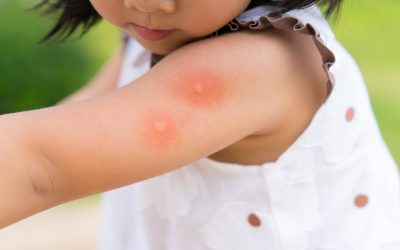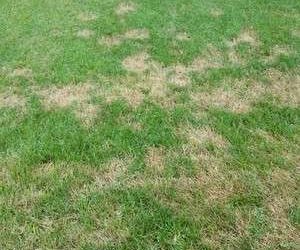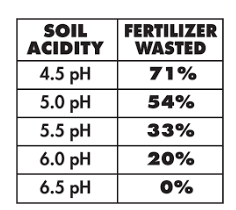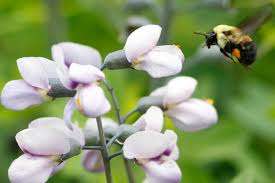
When we see a bee hovering over a flower, we get excited. Bees are not just beautiful creatures; they are essential for our ecosystem. Promoting bee awareness is vital to understanding their impact on our environment. But do you know exactly why bee awareness is important for our ecosystem and food systems? Bees are involved in the pollination of many crops, which directly affects the food we eat, the health of our planet, and increasing bee awareness is essential in reinforcing these facts.
Without bees, we wouldn’t have food or flowers. This may sound alarmist, but it’s true. According to the folks at One Green Planet, bees are responsible for pollinating about one-sixth of the flowering plant species worldwide and approximately 400 different agricultural types of plants. Raising bee awareness helps highlight this crucial role and its importance to our food systems and biodiversity. For instance, fruits like apples, blueberries, and almonds all depend on bee pollination to thrive. Understanding this connection can foster a greater appreciation for these tiny workers and the necessity of bee awareness in preserving our ecosystem.
Bee awareness is not just a personal concern; it has widespread implications for our communities and the world, highlighting the need for collective action to support bee populations.
Choosing bee-friendly plants also raises bee awareness among your gardening community, encouraging others to follow suit.
This strategy not only beautifies your garden but also promotes bee awareness as a topic of conversation among fellow gardeners.
Building a bee house is an excellent way to support bee awareness and conservation efforts in your neighborhood.
As you start planning out your seed and plant purchases for your spring garden, think about including varieties that are bee-friendly. This means planting flowering vegetables, such as tomato and squash varieties, and interspersing plenty of flowers in your vegetable garden to ensure you attract bees. It’s not just about planting a few flowers; clusters of flowering plants will create an inviting environment. Promoting bee awareness in your gardening choices can not only make a big difference but also support the health of ecosystems and encourage more bee-friendly practices. Consider adding herbs like lavender and borage, which are also favorites among bees.
Many annuals, such as cosmos, dahlias, marigolds, and sunflowers, will bring bees to your garden. While often more money upfront, the beauty of perennials is that you plant them once and watch them come back year after year. Some bee-favorite perennials include astilbe, butterfly bush, hosta, and peonies. Of course, many flowering plants attract beneficial insects, butterflies, and songbirds too. With a little research, you’re bound to find plants you like that multiple species find appealing as well. You might even create a bee garden specifically designed to attract these creatures, which can be a rewarding project.
Participating in these initiatives can also enhance community bee awareness and strengthen collective action.
You might also consider building a bee house. No, not a bee hive (though that’s an option as well!) but a structure that allows bees to rest and store the pollen they’ve collected. Bee and pollinator houses have become more popular over the past few years and can be found commercially too. These houses provide shelter for solitary bee species, which are important for pollination. Another step you can take is not to cover your entire garden area with mulch or weed barrier film. While these barriers keep out weeds and make for an attractive-looking garden, they prohibit bees from tunneling in the earth (what 95% of bee species do) to store their pollen. Supporting bee awareness can help others understand these small but significant needs. Share this knowledge with friends and neighbors to foster a community of bee-friendly gardeners.
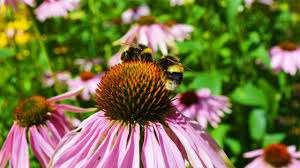
By fostering bee awareness within your community, you’re contributing to a larger movement aimed at protecting these vital pollinators.
For more information about the importance of bees and ways to promote bee awareness, visit The Planet Bee Foundation!
For those interested in learning more about bees and their role in our ecosystems, consider attending workshops or local events dedicated to bee conservation. Many organizations host educational programs that teach participants about bee biology, the importance of pollinators, and how to create supportive environments for these vital creatures. Engaging with local beekeeping clubs can also provide valuable insights and foster connections with like-minded individuals passionate about preserving bee populations.
Moreover, raising awareness online through social media can amplify the importance of bees. Share photos of your garden or bee-friendly practices, and encourage your followers to join in. Create hashtags such as #BeeFriendly and #SaveTheBees to increase visibility. Every small action contributes to a larger movement, leading to more people becoming conscious of their role in protecting these crucial pollinators.
Additionally, consider creating a bee-friendly environment beyond just your garden. Opt for natural pest control methods whenever possible. Furthermore, educating your community about the importance of bees can lead to larger initiatives that support pollinator health. Organizing neighborhood clean-ups or community gardens can expand bee habitats, promoting a healthier ecosystem overall.
Have questions about ProLawn’s Organic Approach to Lawn Health Care? Call the Pros @ ProLawn at 540-662-8316 today!

